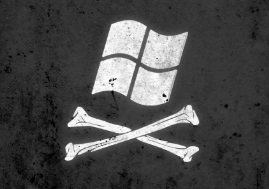For many years, Microsoft and the Software Alliance (BSA) have carried out piracy investigations into organizations large and small.
Companies accused of using Microsoft software without permission usually get a letter asking them to pay up, or face legal consequences.
This also happened to Hanna Instruments, a Rhode Island-based company that sells analytical instruments. Last year, the company was accused of using Microsoft Office products without a proper license.
In a letter, BSA’s lawyers informed Hanna that it would face up to $4,950,000 in damages if the case went to court. Instead, however, they offered to settle the matter for $72,074.
Adding some extra pressure, BSA also warned that Microsoft could get a court order that would allow U.S. marshals to raid the company’s premises.
Where most of these cases are resolved behind closed doors, this one escalated. After being repeatedly contacted by BSA’s lawyers, Hanna decided to take the matter to court, claiming that Microsoft and BSA were trying to ‘extort’ money on ‘baseless’ accusations.
“BSA, Microsoft, and their counsel have, without supplying one scintilla of evidence, issued a series of letters for the sole purpose of extorting inflated monetary damages,” the company informed the court.
Late last week Microsoft and BSA replied to the complaint. While the two companies admit that they reached out to Hanna and offered a settlement, they deny several other allegations, including the extortion claims.
Instead, the companies submit a counterclaim, backing up their copyright infringement accusations and demanding damages.
“Hanna has engaged and continues to engage in the unauthorized installation, reproduction, and distribution and other unlawful use of Microsoft Software on computers on its premises and has used unlicensed copies of Microsoft Software to conduct its business,” they write.
According to Microsoft and BSA, the Rhode Island company still uses unauthorized product keys to activate and install unlicensed Microsoft software.
Turning Hanna’s own evidence against itself, they argue that two product keys were part of a batch of an educational program in China — not for commercial use in the United States.
Another key could be traced back to what appears to be a counterfeit store which Microsoft has since shut down.
“The materials provided by Hanna also indicate that it purchased at least one copy of Microsoft Software from BuyCheapSoftware.com, a now-defunct website that was sued by Microsoft for selling stolen, abused, and otherwise unauthorized decoupled product keys,” Microsoft and BSA write.
According to Hanna, BSA previously failed to provide evidence to prove that the company was using unlicensed keys. However, the counterclaim suggests that the initial accusations had merit.
Whether BSA’s tactic of bringing up millions of dollars in damages and a possible raid by the U.S. Marshalls is the best strategy to resolve such a matter is up for debate of course.
It could very well be that Hanna was duped into buying counterfeit software, without knowing it. Perhaps this will come out as the case progresses. That said, it could also help if both sides simply have a good conversation to see if they can make peace, without threats.
—
Microsoft and BSA’s reply and counterclaim is available here (pdf).


 For many years, Microsoft and the Software Alliance (BSA) have carried out piracy investigations into organizations large and small.
For many years, Microsoft and the Software Alliance (BSA) have carried out piracy investigations into organizations large and small.




